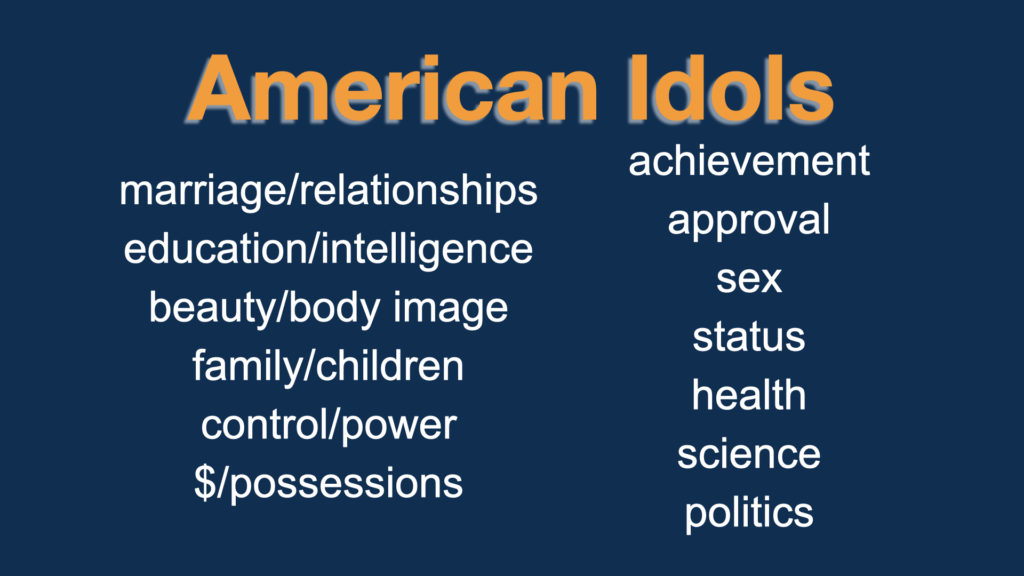
For those who choose to preach or teach the book of Numbers, opportunities abound for warning listeners against idolatry.
Two resources may help you define/describe idolatry:
Keller’s, Counterfeit Gods
Hafemann’s, The God of Promise and the Life of Faith
Numbers 25:1-18 describes the idolatry of God’s people. I titled this section:
“He will bring us into this land”: And We Will Not Worship the Gods of Our Culture.
The narrative is one of those, “Go and do otherwise,” stories in which Israel sets another bad example.
Following the storyline you might consider this structure:
- The lure into idolatry (vv. 1-3a, 6)
- The inevitable judgment (vv. 3b-5, 7-9, 14-18)
- God’s provision of our wholeness (vv. 10-13)
It’s good for us to move from ancient idolatry to more modern versions. I have often used this slide:

Ask folks to locate the idol(s) they’re most tempted to worship.
Congregations/classes will struggle with the brutality of the judgment scene. Once again we come face to face with God’s holiness and the inevitability of judgment that stops “the plague on the people of Israel” (v. 8). The fallout is still enormous (24,000 in v. 9).
Finally, in vv. 10-13 God wants everyone to know what–better who–stopped the plague. It was a priest. And the reason:
“he was jealous with my jealousy among them, so that I did not consume the people of Israel in my jealousy.” (v. 11)
As a result there is renewed wholeness:
“Behold, I give to him my covenant of peace…the covenant of a perpetual priesthood, because he was jealous for his God and made atonement for the people of Israel.”
Some who are fond of Christo-centric readings will see how Christ, the greater Phinehas, turned back God’s wrath when the spear entered His side on the cross (cf. vv. 7-8).
Our God will receive glory in the church and in Christ Jesus (Ephesians 3:21) as you preach and teach about His jealousy which warns us away from our American idols (or the idols of your location).
Randal











